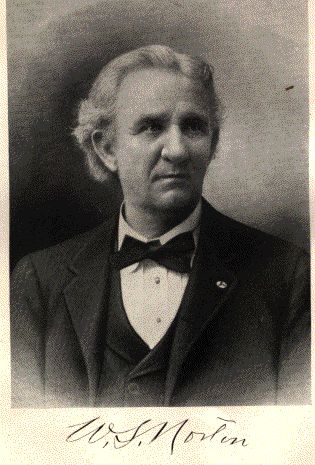 The Battle of Carthage, also known as the Battle of Dry Fork, takes place in Jasper County, Missouri. In this first “full-scale” battle of the Civil War, some 1,100 experienced federal troops commanded by Colonel Franz Sigel clash with a much larger Confederate force, the Missouri State Guard, numbering over 6,000 (4,000 are armed). The southern troops, led by Missouri Governor Claiborne F. Jackson, are unorganized and inexperienced. Yet their sheer numbers serve to overwhelm Union forces, who retreat as the Confederates advance upon their line. The Confederate forces win the largely bloodless battle, kindling southern hopes in the border state.
The Battle of Carthage, also known as the Battle of Dry Fork, takes place in Jasper County, Missouri. In this first “full-scale” battle of the Civil War, some 1,100 experienced federal troops commanded by Colonel Franz Sigel clash with a much larger Confederate force, the Missouri State Guard, numbering over 6,000 (4,000 are armed). The southern troops, led by Missouri Governor Claiborne F. Jackson, are unorganized and inexperienced. Yet their sheer numbers serve to overwhelm Union forces, who retreat as the Confederates advance upon their line. The Confederate forces win the largely bloodless battle, kindling southern hopes in the border state.
Among the 1,000 Union troops on the battlefield is William S. Norton (born 1844), a Baptist (at least part of his life) and son of “a thorough Christian” and long-time, active Baptist. William is a member of Company A of the Independent Mounted Rangers. Later his company becomes a part of the Fourteenth Missouri Cavalry, and still later he serves in the Eighth Missouri Cavalry. The junior Norton survives the war and musters out at Little Rock, Arkansas, in September 1865.
Father Amos (1826-?), however, is not as fortunate. Joining the Union Army, in February 1862 he enlists in Company B of the Fourteenth Missouri Cavalry, and is soon elected lieutenant of his company and then quartermaster. Although mustered out in February 1863, within weeks he is appointed colonel of the Eleventh Missouri Calvary. Yet on April 2, 1863 the senior Norton is captured by a band of guerillas led by John Turner. His fate thereafter remains unknown, and in likelihood he was executed by Tuner’s guerillas.
Son William lives a long and prosperous life after the war, owning and/or running a succession of business ventures as well as serving as president of a bank. He survives two wives and raises one child to adulthood.
Source: “William S. Norton” (link)


